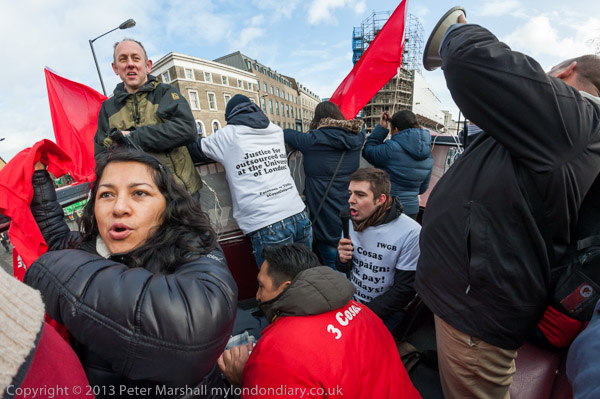
The union, originally known as the Industrial Workers of Great Britain was founded by Latin American cleaners in August 2012 as “a worker led union organising the unorganised, the abandoned and the betrayed“.
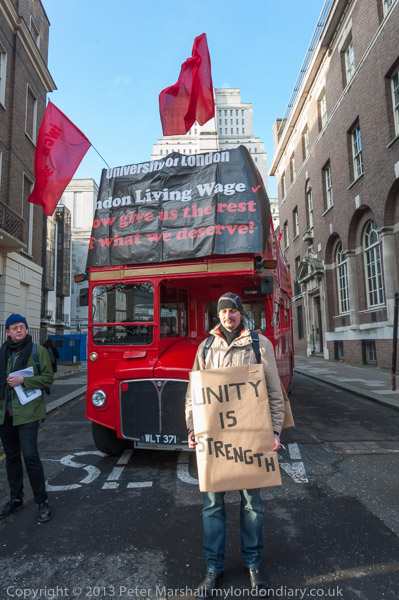
Since then it has seen a remarkable growth thanks to its successes in achieving better pay and conditions of service for its members, expanding from cleaners into various other sector, including some never before unionised in what has become the ‘gig economy’ and has branches for cleaners, couriers, private hire drivers, foster carers, the video games industry, charity workers, nannies, security and receptionists, au pairs, yoga teachers as well as Universities of London and general members branches.
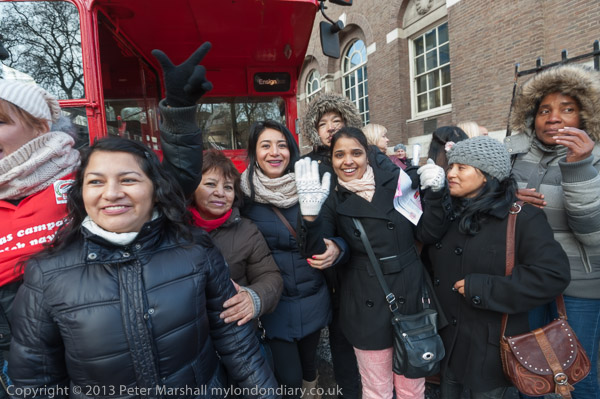
The union was formed after cleaners in traditional trade unions such as Unite and Unison saw that they were not getting the support they needed to improve their pay and conditions. The unions that were recognised by the employers seemed unwilling to confront the employers and press the workers’ case and were failing to organise actions at the workplace.

I had met some of those involved at earlier protests organised by union branches, at times in defiance of the union bureaucracy, and earlier in 2012 by the cleaners’ branch of the Industrial Workers of the World (IWW), including at John Lewis in July 2012 and the LSE and the Royal Bank of Canada in June.
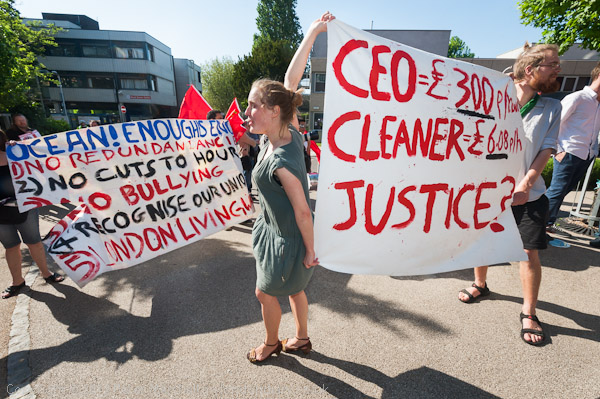
Earlier in May 2012 the I photographed a protest for cleaners led by the IWW at St George’s Hospital in Tooting, where only one of the hospital cleaners was still a member of Unison, the recognised union, as “UNISON have never campaigned for the London Living Wage at St Georges and have actively assisted the management in their efforts to undermine the cleaners resistance to cuts.” Unison had written to the cleaners, instructing them not to take part in the protest and describing the IWW as “a non TUC anti union organisation.”
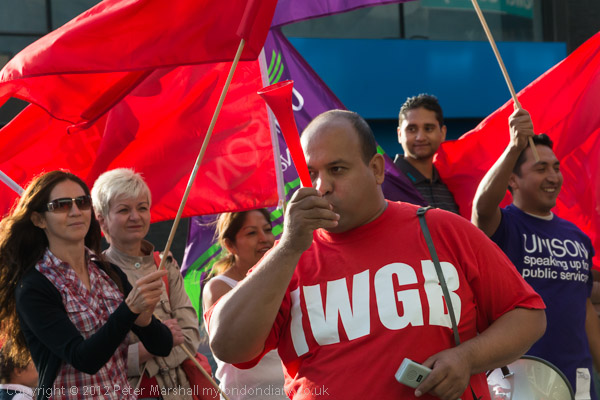
I first became aware of the miserable pay and conditions of cleaners and photographed some of them back in 2006 when the London Citizens Workers’ Association with the support of faith organisations, trade unions (notably the T&GWU) and social justice organisations launched the ‘Justice for Cleaners’ campaign in May Day. Things seem to move slowly but I met them again in 2007 and in 2008 at noisy high-profile but peaceuful demonstrations on the streets outside companies to shame them into ensuring that their outsourced cleaners got better conditions. That success appears to have prompted government action to make such protests, continued by the IWGB and others, illegal, though it seems unlikely to actually prevent them.
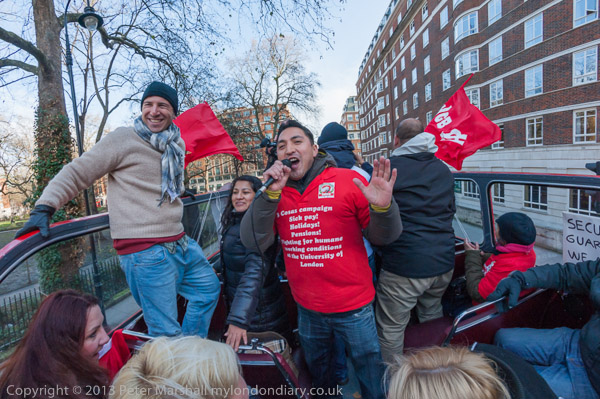
Since the IWGB was formed I’ve photographed many of their protests – too many to list, and including many I’ve written about on this site as well as My London Diary – where a search on ‘IWGB’ will reveal many of them. They are not the only grass roots union representing precarious workers and I’ve also photographed many actions by the United Voices of the World. Both are very much worker-led trade unions and work in similar ways, using the law in tribunals and court cases and holding noisy protests to shame companies.
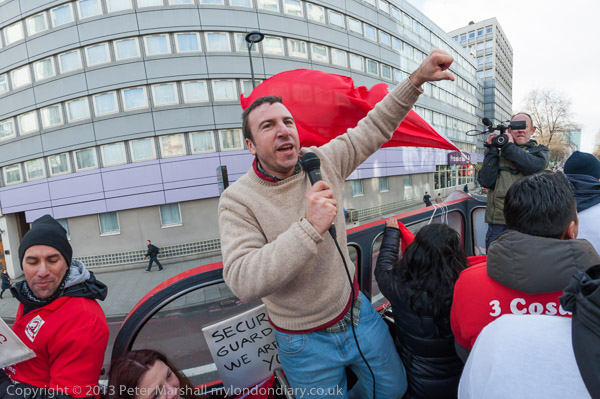
The IWGB say they are the UK’s leading union for precarious workers. They are a democratic and member-led organisation with workers in the branches leading them and determining the policies they follow. There are no high-paid union leaders, and the union has a great record of empowering its members.

The Wikipedia article lists some of their successes though it is in need of considerable updating and some minor corrections. But it does point out some of their success, particularly in the 3 Cosas campaign for proper sick pay, holidays and pensions for workers at the University of London, in attracting support from politicians including Green Party leader Natalie Bennett and Labour MPs Jeremy Corbyn and John McDonnell. And the IWGB have certainly led in challenging employment law relating to the ‘gig economy’.
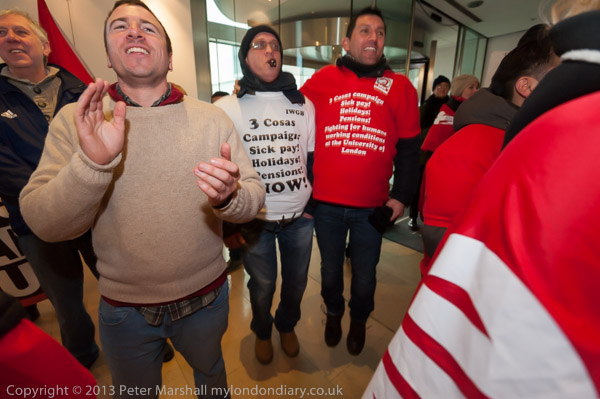
I could fill a book (or two) with my pictures of the IWGB and the UVW, and perhaps one day I will, and I could write much more, though others could do it better. The pictures with this post, with two exceptions come from one day, 28th January 2014, when as a part of the ‘3 Cosas’ campaign low paid workers at the University of London on the second day of their 3 day strike for union recognition and better conditions took their dispute around London on the open-top IWGB battle bus, stopping at key sites, including Parliament Square and the Royal Opera House for a rally and protests.